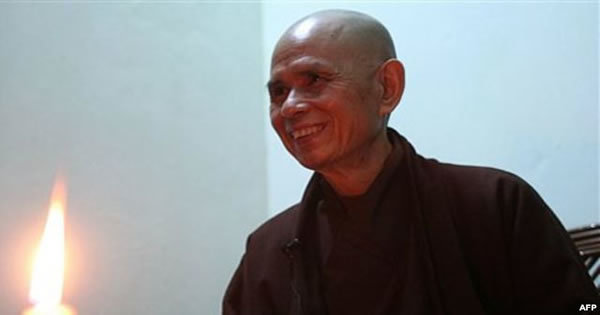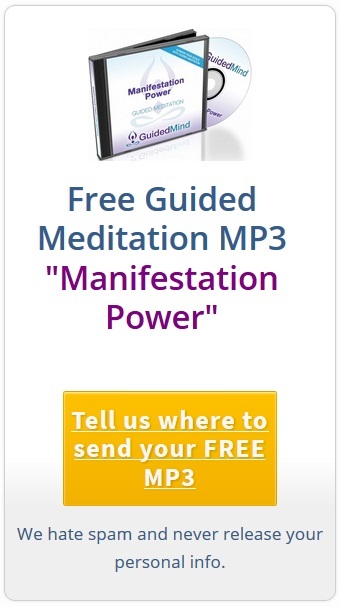
Thich Nhat Hanh is a Zen master who brings life lessons to people around the world. His message of mindfulness, peace and spirituality has changed countless lives through the numerous books, lectures and poems he’s written. Here are nine particularly pertinent life lessons Thich Nhat Hanh has to offer:
9 Life Lessons from Thích Nhất Hạnh
1. “Some people live as though they are already dead. There are people moving around us who are consumed by their past, terrified of their future, and stuck in their anger and jealousy. They are not alive; they are just walking corpses.”
This is a particularly harsh lesson from Thich Nhat Hanh where he really wants to emphasize the importance of living in the moment. When we become preoccupied with negative feelings about the future and past it makes it impossible to do our best in the present moment.
Worrying about things that we cannot change puts us out of control of the present moment, so in a sense we are dead when we do not work in the now. So release your worries.
2. “When you plant lettuce, if it does not grow well, you don’t blame the lettuce. You look for reasons it is not doing well. It may need fertilizer, or more water, or less sun. You never blame the lettuce. Yet if we have problems with our friends or family, we blame the other person. But if we know how to take care of them, they will grow well, like the lettuce. Blaming has no positive effect at all, nor does trying to persuade using reason and argument. That is my experience. No blame, no reasoning, no argument, just understanding. If you understand, and you show that you understand, you can love, and the situation will change.”
It is so easy for us demonize and blame others for complex problems. Yet when the tables turn and we do something wrong we justify it with the numerous factors that led to the incident. We should extend the same courtesy to all others giving them the same compassion we would want to receive when making a mistake.
3. “To dwell in the here and now does not mean you never think about the past or responsibly plan for the future. The idea is simply not to allow you to get lost in regrets about the past or worries about the future
. If you are firmly grounded in the present moment, the past can be an object of inquiry, the object of your mindfulness and concentration. You can attain many insights by looking into the past. But you are still grounded in the present moment.”
Just because you live in the moment, doesn’t mean that you should not ever consider the future and past. The past offers us a lot of wisdom. We have to plan for our future to live responsibly. To live in the moment means just to not get swept away by the future and past, so that we forget to experience the beauty of the present.
4. “People have a hard time letting go of their suffering. Out of a fear of the unknown, they prefer suffering that is familiar.”
We can often get caught up in the difficulty of our current set of problems, so that we don’t want to branch out and grow. No matter what improvements or changes we make in our lives there will always be problems, but often we prefer those problems that we already know how to manage.
We should not let our fear of the unfamiliar inhibit us from growing.
5. “Every thought you produce, anything you say, any action you do, it bears your signature.”
Think carefully about what you say, do and think, because these are the things that form your identity. Living mindfully also means to live carefully to work towards creating an identity where you wouldn’t mind your signature being on everything you produce.
6. “We have to continue to learn. We have to be open. And we have to be ready to release our knowledge in order to come to a higher understanding of reality.”
Holding onto knowledge and ideals does not let us to explore. Keeping open to the world of different perspective we may find we learn a lot. It will also help us grow compassion for others, who are a lot more like us then we think they are in reality.
7. “Every sliver of carrot needed the sun, the water, the air, the care of another human being. Imagine the effort to grow that carrot, take it from the earth, pack it, cut it and get it here for you. Pay tribute to that. Chew mindfully. At times, close your eyes and pay homage to the carrot. Think of the nourishment it needed to be and the nourishment it’s providing as a gift for your body.”
Every small activity of the day is filled with wonder. By learning to take note of all the complexities of the luxuries of everyday life, we get a great appreciation for the abundance that we live in. This leads to not desiring so many additional things since we already have so much.
8. “Sometimes your joy is the source of your smile, but sometimes your smile can be the source of your joy.”
Our body can have a great deal of influence on our mood. To carry one’s self with confidence and happiness can help bring the brain out of a rut. Next time you are feeling down, stand up straight and smile to help improve your mood.
9. “My actions are my only true belongings.”
Things come and go, but what determines the course of our lives is the way we act. Choose wisely when making decisions for actions and inactions, because these are the things that permanently alter the course of our lives and those around us.

